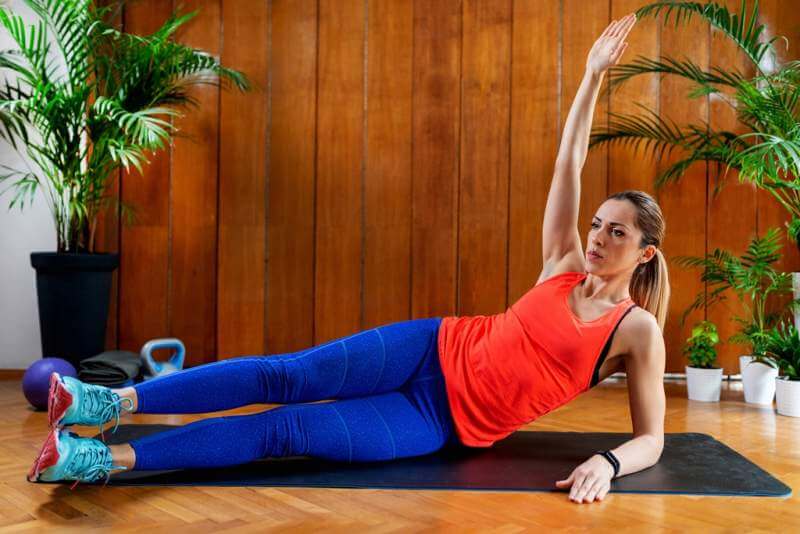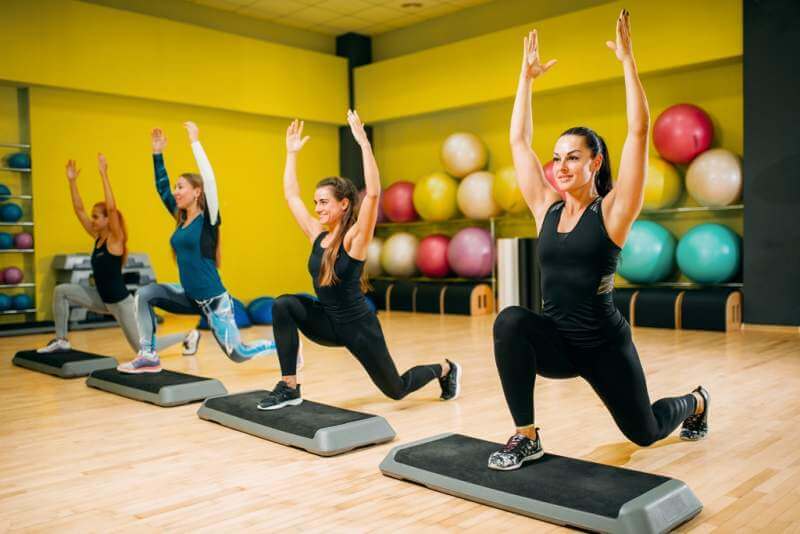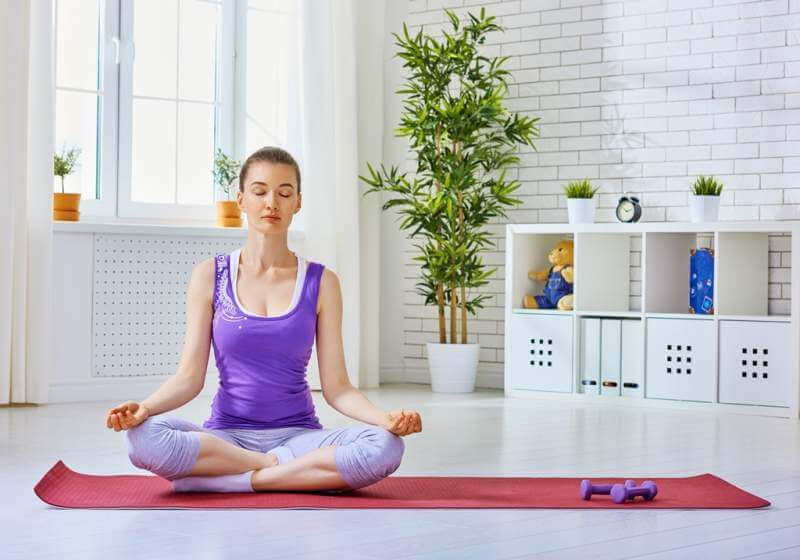Doing regular exercises is what makes us look good and fit. But being physically active isn’t just about fitting in in your old dress or suit but also keep your body healthy, especially the heart.
Some people don’t really think about what types of exercises do good to their hearts, while some pay special attention to what exercises their heart will benefit from the most.
If you belong to the latter, take a look at what exercises you should do on a regular basis.
1. Interval training
 In essence, interval training is a combination of short bursts of several exercises that strength by a somewhat longer period of rest (but an active rest).
In essence, interval training is a combination of short bursts of several exercises that strength by a somewhat longer period of rest (but an active rest).
In other words, if you enjoy walking, you can spend 3 minutes walking at your normal pace, then spend 1 minute walking briskly. What this training does is change your heart rate, which burns calories, improves your vascular system and helps your body get rid of the excess fat and sugar more effectively.
2. Strength training
 Also known as resistance training, strength training raises your good cholesterol if combined with aerobics. It also decreases the risk of having a heart attack and even a stroke. You should try and do strength training at least two times a week. In an ideal situation, the training would include every major muscle group, including arms and legs, chest and shoulders, hips, abs, and your back.
Also known as resistance training, strength training raises your good cholesterol if combined with aerobics. It also decreases the risk of having a heart attack and even a stroke. You should try and do strength training at least two times a week. In an ideal situation, the training would include every major muscle group, including arms and legs, chest and shoulders, hips, abs, and your back.
Strength training exercises include pushups, situps, and squats, as well as different uses of resistance bands and also lifting free weights. Whatever type of aerobic you do, always do it in sets, repeating the movement 8-12 times or until it gets too difficult to repeat.
3. Aerobics
 As mentioned, strength training is most effective when combined with aerobics exercises, also called cardio exercises. Aerobics increase your heart rate and makes you sweat, which means it improves your blood circulation while simultaneously lowering your blood pressure. In case you suffer from diabetes, it’s also possible that aerobic exercises will contribute to lower sugar level in your blood.
As mentioned, strength training is most effective when combined with aerobics exercises, also called cardio exercises. Aerobics increase your heart rate and makes you sweat, which means it improves your blood circulation while simultaneously lowering your blood pressure. In case you suffer from diabetes, it’s also possible that aerobic exercises will contribute to lower sugar level in your blood.
In general, we should all get at least 2,5 hours of aerobic exercise every week, at intervals of at least 10 minutes, There is the right aerobic exercise for everybody, depending on our preferences and fitness. Some of them include gardening and dancing, walking at a brisk speed, swimming or cycling.
In case you have the desire to do aerobic exercises but time is the issue, then you can focus on 1 hour and fifteen minutes of high-intensity aerobic exercise, such as hiking uphill, jogging or biking faster than 10 mph, or even playing basketball or soccer.
4. Flexibility exercises
 You may think that physical flexibility has nothing to do with the condition of your heart, but you’re wrong. Flexibility doesn’t help your heart directly, but it does help you do all the exercises that help your heart more easily. It actually prevents cramps and joint aches and decreases muscle pain.
You may think that physical flexibility has nothing to do with the condition of your heart, but you’re wrong. Flexibility doesn’t help your heart directly, but it does help you do all the exercises that help your heart more easily. It actually prevents cramps and joint aches and decreases muscle pain.
The great thing about flexibility exercises is that they can be done almost anywhere, even at your job – a couple of minutes of stretching will do wonders for your body.
5. Yoga
 If you are up for improving your flexibility, consider yoga, tai chi or Pilates. All of them improve your flexibility but also balance. And not just that – yoga is known to calm people, lowering their blood pressure and help them decompress and lower the stress levels. Lastly, it makes your blood vessels more elastic, which helps your heart work more efficiently.
If you are up for improving your flexibility, consider yoga, tai chi or Pilates. All of them improve your flexibility but also balance. And not just that – yoga is known to calm people, lowering their blood pressure and help them decompress and lower the stress levels. Lastly, it makes your blood vessels more elastic, which helps your heart work more efficiently.
6. Total-body, nonimpact sports
 Any activity that makes the majority of your muscles involved is good for your heart because it forces your heart to work more. So, to keep your whole body activated, you can take up swimming, rowing or even walking with poles.
Any activity that makes the majority of your muscles involved is good for your heart because it forces your heart to work more. So, to keep your whole body activated, you can take up swimming, rowing or even walking with poles.
7. Simply being active
 It’s better to simply be active throughout the day, like clean the house, vacuum, do some gardening, go to the grocery store on foot than do 1 hour of exercise and then sit at the computer half a day. You will burn more calories if you are active throughout the day by doing usual chores.
It’s better to simply be active throughout the day, like clean the house, vacuum, do some gardening, go to the grocery store on foot than do 1 hour of exercise and then sit at the computer half a day. You will burn more calories if you are active throughout the day by doing usual chores.
Precautions before the exercise
 If you already have some heart issues (or you simply want to be on the safe side), you should definitely consult a cardiologist before you start doing any exercise. They will advise you on how intensive your training should be in the first couple of months and what signs to pay attention to while you’re exercising.
If you already have some heart issues (or you simply want to be on the safe side), you should definitely consult a cardiologist before you start doing any exercise. They will advise you on how intensive your training should be in the first couple of months and what signs to pay attention to while you’re exercising.
In case you feel pressure or pain in the chest while exercising, find it difficult to breathe, experience a breakout of cold sweat or feel dizzy – stop immediately with the exercise and seek medical help.
At the very beginning of the exercises, you’ll experience light to medium pain in your muscles, which is perfectly fine. In time, you’ll notice you’re capable of doing more repetitions and move on to higher intensity.
Exercises to avoid
 Forget about running lost distance, especially if you run along the pavement. You will be prone to various pains, especially in the joints, and will it wear your body even though it helps the heart.
Forget about running lost distance, especially if you run along the pavement. You will be prone to various pains, especially in the joints, and will it wear your body even though it helps the heart.
Also, don’t ever do an intensive activity that you haven’t prepared yourself for. Even if it’s shoveling snow in winter or going on a long ride on your bike at the first sign of spring – avoid the exercise that gets your heart rate up really quickly. For those who are at risk of a heart attack, this could prove fatal. This is also why you shouldn’t ever exercise without warming up first.
Final comment
Our heart needs us to be active. Any physical activity on regular basis will be beneficial to your heart, just as long as you listen to your body and be disciplined.
Share this post if you like it!
